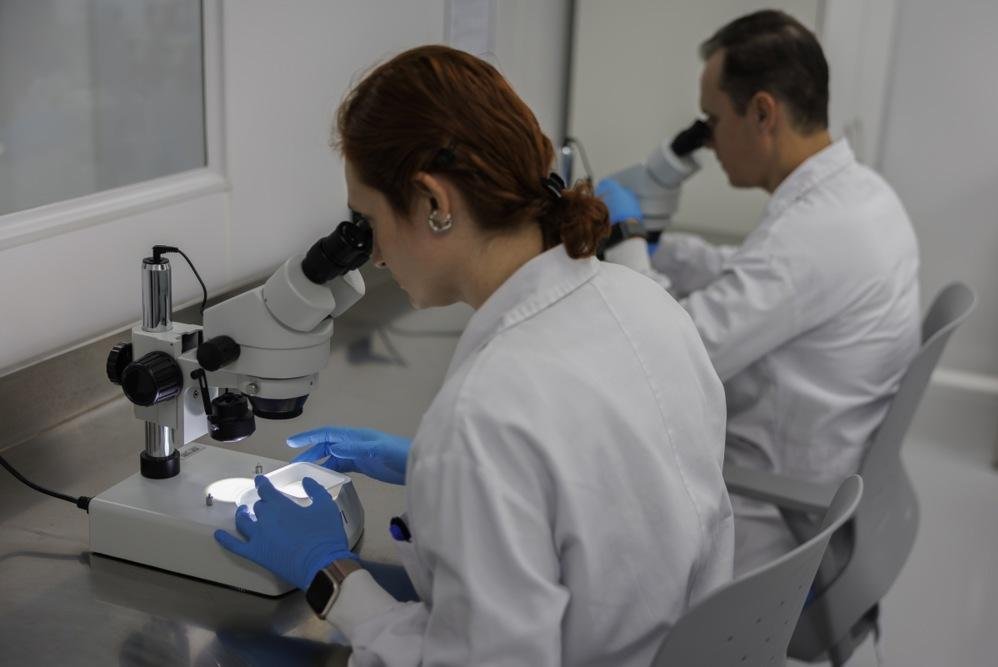Cryptococcosis is a life-threatening fungal infection affecting 5%–10% of people living with HIV (PLHIV). It is a leading cause of AIDS-related deaths, responsible for an estimated 625,000 deaths worldwide each year. Early screening, diagnosis,…
Blog
-

Meghan left red-faced after friend reveals truth about Paris Fashion Week invite
Meghan left red-faced after friend reveals truth about Paris Fashion Week invite Meghan Markle’s recent appearance at Paris Fashion Week was not the result of a formal invitation, it was her own idea, designer…
Continue Reading
-

Battlefield 6 is already the biggest game of the franchise by Steam concurrent user count
Battlefield 6 is the franchise’s biggest ever game on Steam, clocking up over 700,000 concurrent players within 24 hours of its debut.
While also available on PlayStation 5 and Xbox Series X/S — the player numbers for which are…
Continue Reading
-

‘Locked up for 24 years’: joy and sorrow as Palestinian prisoners and detainees return home | Gaza
The police could not hold the crowds back. As soon as they saw the Palestinian prisoners and detainees through the windows of the bus, hundreds of people gathering in front of a theatre in Ramallah in the occupied West Bank rushed forward,…
Continue Reading
-
Just a moment…
Just a moment… This request seems a bit unusual, so we need to confirm that you’re human. Please press and hold the button until it turns completely green. Thank you for your cooperation!
Continue Reading
-

New AI technology can spot deadly infections before they strike | Health
New AI technology can spot deadly infections before they strike | Health | nbcrightnow.com
We recognize you are attempting to access this website from a country belonging…
Continue Reading
-

Brazil opens world’s largest mosquito biofactory to fight disease
Employees work in a laboratory of the British biotechnology company Oxitec, in Campinas, Brazil, on October 1. The British biotechnology venture that applies genetic modification to produce Aedes aegypti mosquitoes, whose female offspring are…
Continue Reading
-

Study: Increased Serum cAMP Levels Observed in Patients With Asthma
Data published in the Journal of Clinical Investigation demonstrated that patients with asthma have significantly elevated levels of cyclic adenosine monophosphate (cAMP), a certain molecule within the blood. With this discovery, the researchers determined that a simple blood test may be able to diagnose asthma and its severity, which could be significant when identifying and monitoring patients with asthmatic symptoms.1,2
The authors wrote that β2-agonists are cornerstone treatments of asthma when attempting to prevent or reverse the shortening of human airway smooth muscle (HASM), the pivotal cell regulating bronchomotor tone. β2-agonists act upon β2-adrenoceptor (β2AR) and activate adenylyl cyclase, which generates 3′,5′-cAMP. An increase in intracellular cAMP levels stimulates protein kinase A, which modulates multiple downstream targets to promote HASM relaxation and reverse airflow obstruction.1
To further explore the clinical utility of detecting circulating cAMP, the authors conducted their study to measure cAMP levels in a serum biobank from the Severe Asthma Research Program 3 (SARP-3). The investigators obtained 87 serum samples of patients with asthma, of whom 39 were diagnosed with severe disease, as well as 273 serum samples of participants without a known history of asthma or other lung diseases.1
“What we discovered is a specific transporter, a protein on the membrane of airway smooth muscle cells, allows cAMP to leak into the blood,” senior study author Reynold Panettieri, vice chancellor and director of translational medicine and science at Rutgers University, said in a news release. “For decades, we believed that an enzyme called phosphodiesterase was the critical factor in decreasing cAMP. We now refute that and say this transporter simply leaks it out.”2
A high variability—or a wide spread of cAMP levels—was detected in the 87 serum samples of patients with asthma, ranging from about 0.291 to 563.9 picomoles. Conversely, the range of cAMP levels in the 273 serum samples of individuals without asthma was markedly smaller (0–27.72 picomoles), and compared with the nonasthma group (median: 0.520 picomole), serum cAMP levels were significantly higher in patients with asthma (median: 6.220 picomoles).1
“We would anticipate maybe in the next 6 months, we’ll have nailed the fidelity of it, get it into our intellectual property and patent the test itself, and then in a year to 2, it could become available,” Panettieri said. “Every disease we study or treat is not one disease. There are different aspects and attributes within a disease entity.”2
To further test the hypothesis that cAMP levels can differentiate asthma severity (severe vs nonsevere) in Severe Asthma Research Program 3 (SARP-3) samples, the investigators applied linear regression models with age and sex as covariates across clinical groups. They observed no significant difference of serum cAMP levels between the 2 severities; however, each asthma group showed significantly higher cAMP levels (adjusted P < .00001) than the nonasthma group.1
The SARP-3 data were also leveraged to assess whether measured serum cAMP levels are associated with any clinical traits of asthma, such as asthma endotypes, poor control indicators, and postbronchodilator airflow reversibility. There were no significant differences in cAMP levels among or between groups stratified by eosinophilic or neutrophilic asthma nor any of the poor control indicators. In addition, the investigators reported they did not detect significant differences in serum cAMP levels with maximum FEV1 reversibility with albuterol. Also of note, serum cAMP levels increased with the number of inhaled corticosteroid puffs and controllers used, and in the nonsevere asthma group, increased with the increases of postbronchodilator lung function.1
The authors explained that lung function tests in kids under the age of 5 years are difficult; therefore, pinprick or blood tests may be more feasible options in this age group.2 Future research is needed to further confirm the link between serum cAMP levels in asthma severity and other disease characteristics.1
“Further studies are necessary to explore the link between serum cAMP levels with bronchodilator or treatment responses by asthma severity; ABCC1 expression and activity in health and disease, including specific cell types of origin; and, whether these physiological outcomes and clinical phenotypes are affected by variations in ABCC1 genotypes in a large cohort of patients with and without asthma,” the authors concluded.1
REFERENCES
1. An SS, Cao G, Ahn K, et al. Serum cAMP levels are increased in patients with asthma. J Clin Invest. 2025;135(5):e186937. doi.org/10.1172/JCI186937
2. Rutgers University. Scientists discover potential blood test for asthma diagnosis and severity. News release. September 29, 2025. Accessed October 13, 2025. https://www.rutgers.edu/news/scientists-discover-potential-blood-test-asthma-diagnosis-and-severity
Continue Reading
-
We Almost Can't Process How Great This Deal Is: The AMD Ryzen 5 5500 Is Now 45% Off – PCMag
- We Almost Can’t Process How Great This Deal Is: The AMD Ryzen 5 5500 Is Now 45% Off PCMag
- AMD’s Ryzen 7 7800X3D CPU Is Over $100 Off For A Limited Time GameSpot
- This perfect AM5 starter bundle sees price fall in latest Amazon deal PC Guide
- MSI…
Continue Reading
-

Women Are Diagnosed With ADHD 5 Years Later Than Men
CONFERENCE REPORTER
Attention-deficit/hyperactivity disorder (ADHD) in women is diagnosed approximately 5 years later than in men, despite symptoms appearing at the same age, says new research. Additionally, women with ADHD also endure emotional…
Continue Reading
